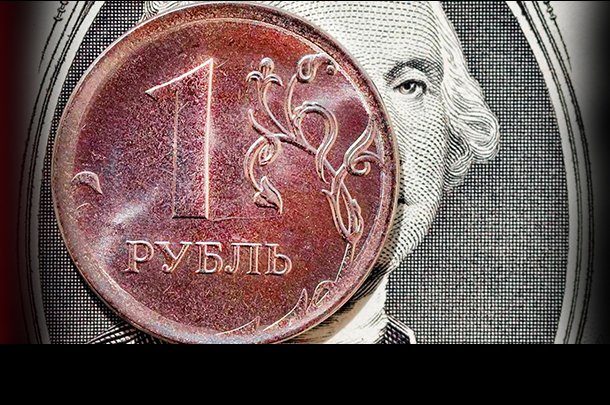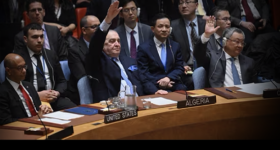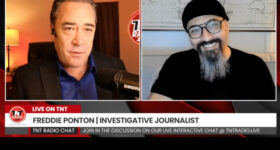External actors removed from the frenzy that is largely focused in Europe must be shaking their heads in disbelief at Europe’s zeal to join in this ‘war’. Was it deliberately provoked? Is there an escalation ‘in the works’ somewhere?

Alastair Crooke
Al Mayadeen Net
What constitutes the most important geostrategic event of the week? Well, it was India insisting to remove the US dollar in trade with Russia and replacing it with the local currency (whilst the US reacts by threatening India with separate sanctions). The list of ‘recalcitrants’ is lengthening: China too has been threatened by US sanctions for not joining in sanctioning Russia. Other states, including Turkey, Brazil (a skeptical Bolsonaro) and Gulf States are boycotting the ‘war on Russia’. In effect, it is mostly Europe who has gone the ‘whole hog’ on the lines of French Finance minister Le Maire’s comments in “waging an all-out economic and financial war on Russia. We will cause the collapse of the Russian economy”. The rest of the world remains notably ‘cool’ and aloof.
I recall being told by a senior British panjandrum in 2006 — well before its actual outset — that war with Iraq had already been decided, and it would transform the Middle East (to the US advantage). When I demurred, I was told either ‘get with it’, or be removed (in the event I was exiled).
I recall this incident because it seems to me that something rather similar must have been said to Olaf Scholz in Washington in the run-up to his February meeting with Putin in Moscow: Something like, we’re going to cause the collapse of the Russian economy, which will likely see President Putin evicted from office in the turmoil that would ensue. ‘Get with it’.
Scholz did just that — and more — ultimately sacrificing Nord Stream 2, promising a big spike in Germany’s military size, and even endorsing sending weapons to conflict zones (such as Ukraine).
Boris Johnson already was using the Ukraine conflict to try to reclaim a ‘world role’ for a post-Brexit Britain; and possibly Scholz decided to make a ‘virtue of necessity’ — similarly to fulfill a wish to see Germany again becoming a “forceful” participant in global politics by jettisoning the German guilt-complex from WWII and becoming “combat ready” — all of which Scholz’ party aspires to – predating Ukraine.
In any event, Europe has embraced an all-out economic war on Russia with un-customary zeal. The West has taken its economic war on Russia to new heights, never before experienced: Russian Central Bank foreign reserves were seized; its financial institutions frozen out of external capital markets, certain Russian banks expelled from SWIFT, and the Rouble suffered a concerted ‘sell’ operation mounted out of New York (as in 2014).
However, it is not the detail that matters. Not even the means by which Russia avoided its preordained economic demise (early wargaming war prospects). No, its salience lies with a state’s foreign reserves being expropriated; its institutions paralyzed; and its currency assaulted — at ‘the flick of a switch’.
Then, just as suddenly, Europe re-erected an Iron Curtain (but this time against Russia) via a PSYOPS media narrative, which when superimposed upon emotion-jerking imagery, has evoked a moral outrage which insists on certain retaliation.
President Putin becomes the cold, inhuman irrational antithesis to the rational liberal order, necessitating a moral crusade – perhaps even a military one – to confront such inhumanity. All this sprung into a Europe-wide frenzy, at the ‘flick of a switch’.
And – at the ‘flick of a switch’ – Russian discourse and perspectives are canceled across the western information space: Singularity and unity of messaging is Brussels’ goal.
Again, it is the context that matters. In one sense, the tragedy in Ukraine is a distraction: The point – not lost on the rest of the world – is how this all ‘was switched on’ against a major power in a day. It could just as easily happen to them, they realize.
That’s why India’s decision to trade in Rupees and Roubles is a harbinger of things to come. In throwing the ‘kitchen sink’ at Russia, the West has starkly highlighted the risks to the rest of the world that are inherent through participation in this Western-led ‘rules-based global order’.
And in triggering through media management the outrage which demands certain punitive retaliation, and outlawing alternative views, they send a shiver through many non-western leaderships — whose civilizational and value distinctions clearly mean nothing to the West. We will see many of these countries increasingly ‘abandon ship’.
Finally, external actors removed from the frenzy that is largely focused in Europe must be shaking their heads in disbelief at Europe’s zeal to join in this ‘war’. Was it deliberately provoked? Is there an escalation ‘in the works’ somewhere?
A ‘world at war’ – whether kinetic or the full-monty financial – will be a disaster for Europe. War is inflationary. War is contractionary (and inflationary too). It acts as a tax on any big importer such as Europe. Energy and commodities prices are currently higher – relatively – than any year since 1915. Wheat prices (25% of global supplies are sourced from Ukraine and Russia) are at their highest since 2008. Everything is going up vertically. The whole production chain for food is under pressure from every side.
Why did Europe say ‘yes’?
***
Author Alastair Crooke is the Director of Conflicts Forum, and a former senior British diplomat.
READ MORE UKRAINE NEWS AT: 21st Century Wire Ukraine Files
PLEASE HELP SUPPORT OUR INDEPENDENT MEDIA PLATFORM HERE















